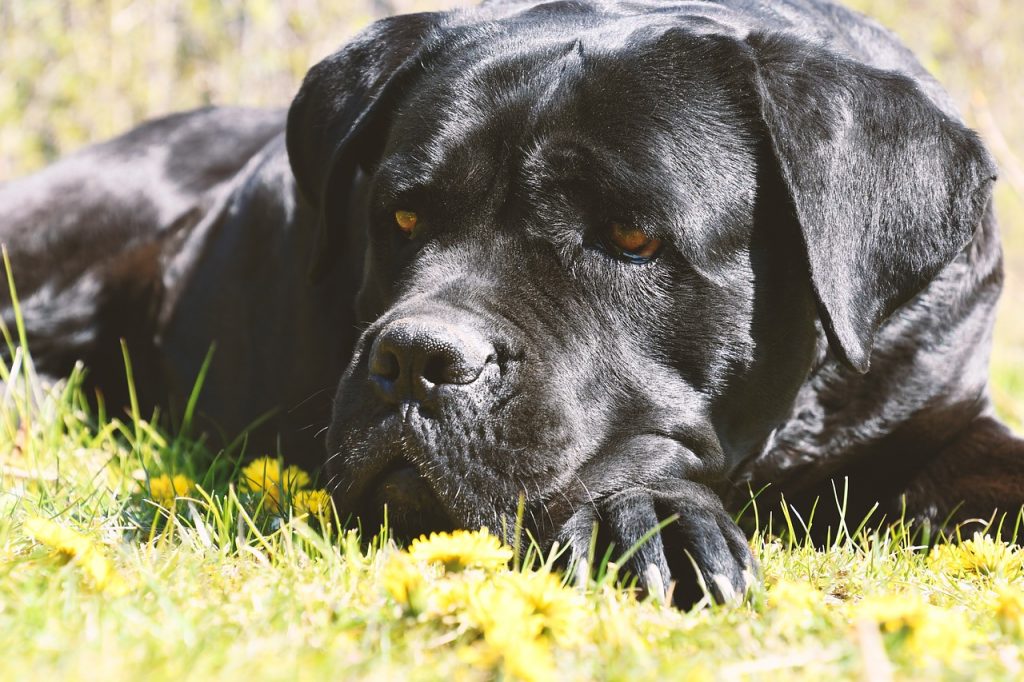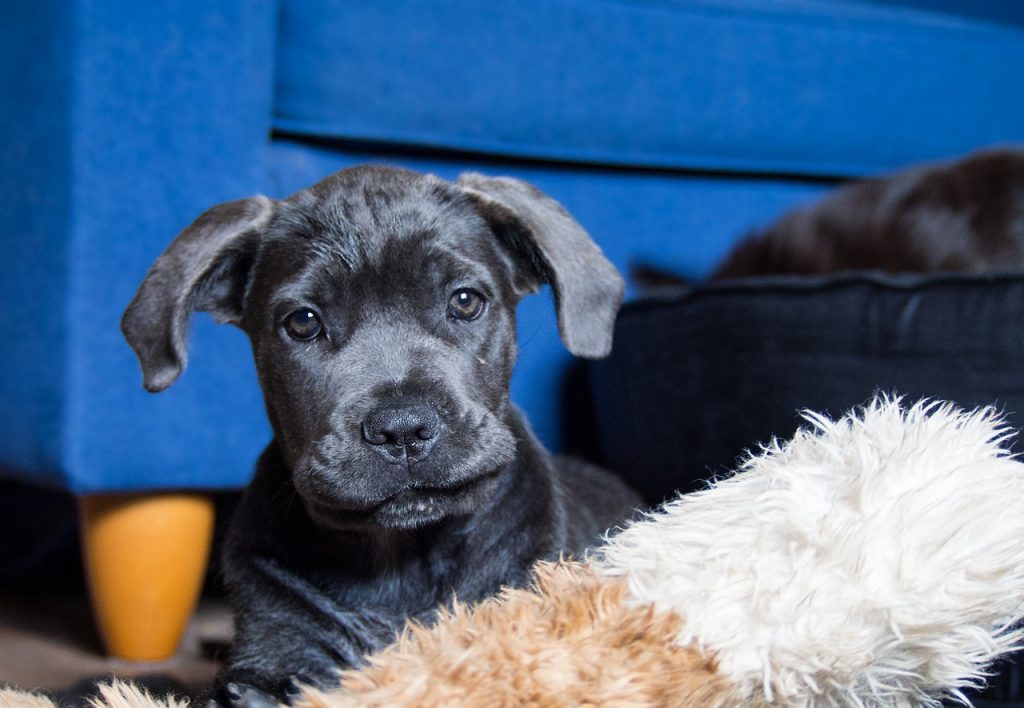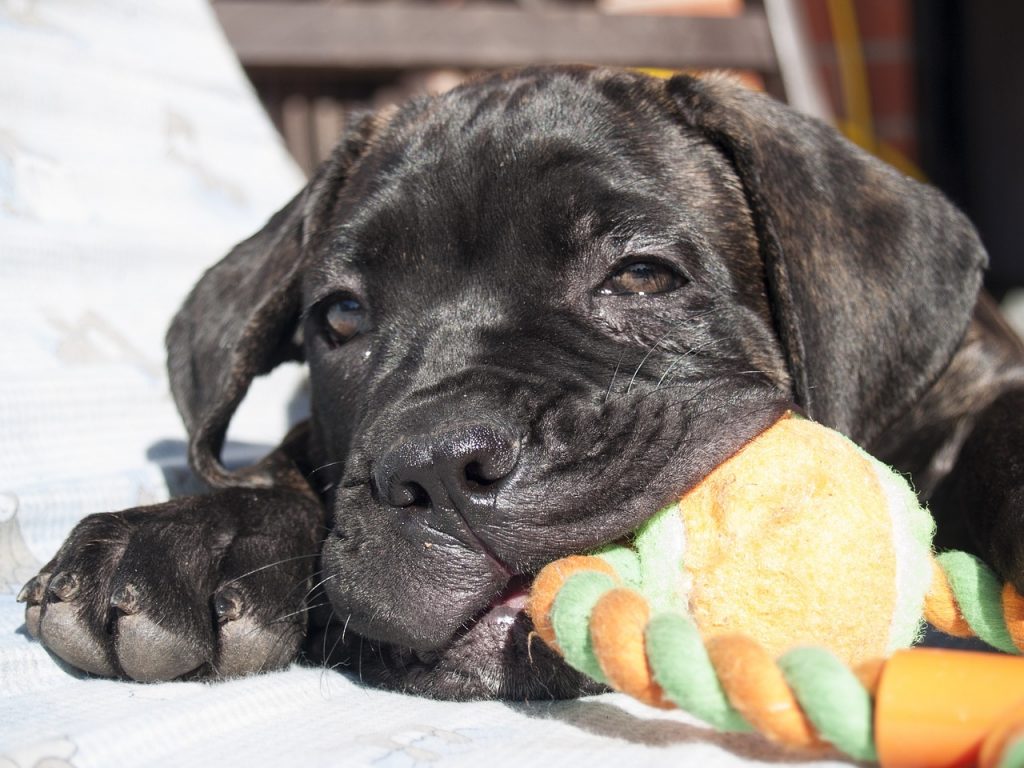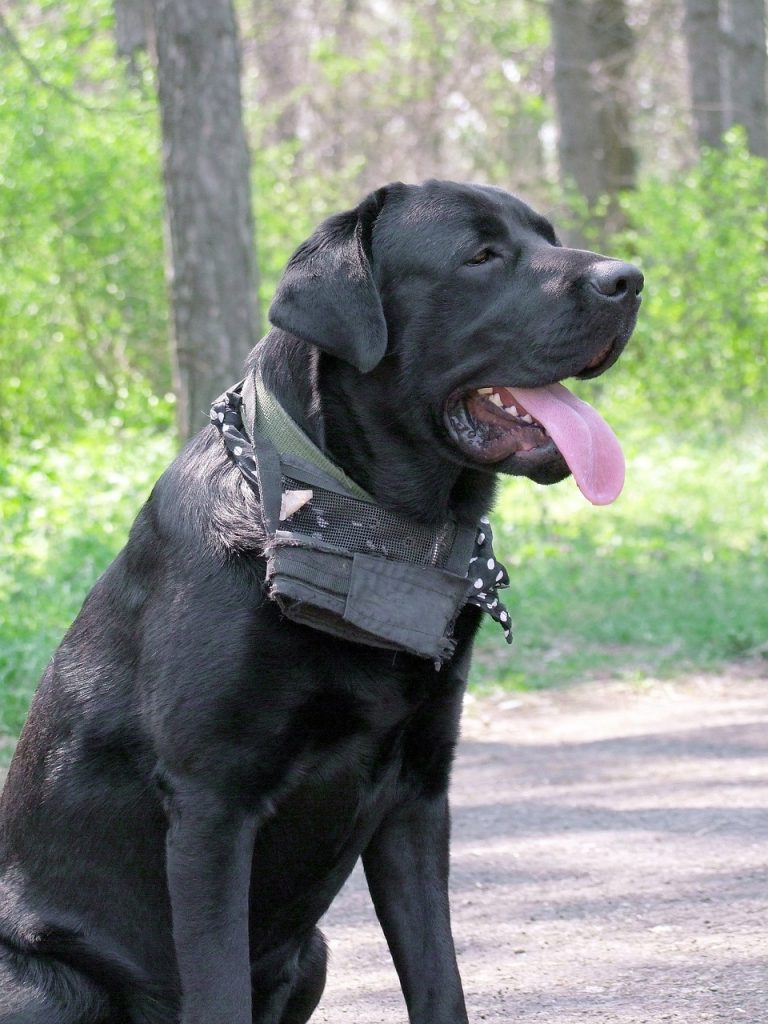Are you a proud owner of a Cane Corso and want to know more how long do cane corsos live? As one of the most popular Italian mastiffs, this breed has an average lifespan between 9 to 12 years.
Our blog post delves into factors like nutrition and health conditions that can influence how long these dogs live. Don’t miss out on learning how long do cane corsos live.

Key Takeaways
- Cane Corsos have an average lifespan of 9 to 12 years, similar to other large dog breeds.
- Factors like nutrition, environment, size, genes, and healthcare can influence the lifespan of Cane Corsos.
- Regular veterinary check – ups and preventive care are crucial for increasing their longevity.
- Common health concerns for Cane Corsos include joint issues, gastric torsion and bloating, epilepsy, skin allergies, eyelid abnormalities, and heart problems.
- How long do cane corsos live.
The Lifespan of Cane Corsos
Cane Corsos have an average lifespan of around 10 to 12 years, but several factors can influence their longevity and how long do cane corsos live.
Average lifespan of Cane Corsos
Cane Corsos live a long time. Many of them reach 10 to 12 years old. The big, strong dogs can sometimes live up to 13-14 years too. They have the same lifespan as other large dogs.
But this is not the same for all Cane Corsos. Some might live a bit less or more than others. The median age for male Cane Corsos is around 9.25 years and for females, it’s about 9.33 years. This are some idea of how long do cane corsos live.
Factors that can affect lifespan (nutrition, environment, size, genes, healthcare)
Several factors can impact the lifespan of Cane Corsos. These include:
- Nutrition: Providing a balanced and nutritious diet is crucial for the overall health and longevity of Cane Corsos. A diet that meets their specific nutritional needs can help prevent certain health issues and promote a longer lifespan.
- Environment: The living environment of Cane Corsos plays a significant role in their lifespan. A safe and comfortable living space, free from extreme temperatures or harmful substances, can contribute to their overall well-being and longevity.
- Size: The size of Cane Corsos can affect their lifespan. Larger dogs tend to have shorter lifespans compared to smaller breeds. It’s important to note that while genetics play a role in determining their size, proper nutrition and exercise can also influence it.
- Genes: Genetics plays a crucial role in determining the lifespan of Cane Corsos. Certain genetic factors may predispose them to certain health conditions, which can impact their overall lifespan.
- Healthcare: Regular veterinary check-ups and preventive healthcare practices are essential for increasing the lifespan of Cane Corsos. Vaccinations, parasite control, dental care, and early detection of any health issues are key components in ensuring they live a long and healthy life.

Common Health Concerns for Cane Corsos
Cane Corsos commonly experience health issues such as joint problems, gastric torsion, epilepsy, skin allergies, eyelid abnormalities, and heart problems.
Joint issues (hip & elbow dysplasia)
Cane Corsos can be prone to joint issues like hip and elbow dysplasia. This is a condition where the joints don’t develop properly, causing discomfort and difficulty in movement for your dog.
It’s vital to keep an eye out for any signs of limping or stiffness, as early detection can make a big difference in managing these conditions. Regular exercise and maintaining a healthy weight can help reduce stress on their joints.
Providing them with a balanced diet that includes essential nutrients like glucosamine and omega-3 fatty acids can also support joint health. Regular check-ups with the veterinarian will ensure that any joint issues are identified early and treated appropriately to help keep your Cane Corso happy and active for many years to come.
Gastric torsion & bloating
Gastric torsion and bloating are common health concerns for Cane Corsos. These conditions occur when the stomach fills with gas and twists, causing discomfort and potentially cutting off blood flow to vital organs.
It can be life-threatening if not treated promptly. Factors like eating too quickly, exercising right after meals, or consuming large amounts of food or water at once can increase the risk of gastric torsion and bloating in Cane Corsos.
To reduce the chances of these conditions occurring, it is advised to feed your dog smaller meals throughout the day, avoid strenuous exercise immediately after eating, and provide a calm environment during meal times.
Idiopathic epilepsy
Idiopathic epilepsy is a common health concern for Cane Corsos. It is a neurological disorder that causes seizures without any known underlying cause. Epileptic seizures can vary in frequency and severity, but they can significantly impact the quality of life for your dog.
While it is difficult to prevent or cure idiopathic epilepsy, there are treatment options available to help manage the condition and reduce the frequency of seizures. If you suspect that your Cane Corso is experiencing seizures, it’s essential to consult with your veterinarian for proper diagnosis and guidance on how to best support your dog’s well-being.
Skin allergies
Cane Corsos can be prone to skin allergies, which can cause discomfort and irritation for your furry friend. Common symptoms of skin allergies in Cane Corsos include itching, redness, rashes, and hair loss.
These allergies can be caused by various factors such as fleas, pollen, certain foods, or even environmental irritants. It is important to pay attention to your dog’s skin health and take necessary steps to prevent or manage these allergies.
Regular grooming, including bathing with hypoallergenic shampoos and brushing their coat regularly, can help keep their skin healthy. Additionally, providing a balanced diet with high-quality ingredients and avoiding potential allergens can also contribute to managing skin allergies in Cane Corsos.
Eyelid abnormalities
Cane Corsos are prone to eyelid abnormalities, which can affect their overall eye health. One common condition is called entropion, where the eyelid rolls inward towards the eye, causing irritation and discomfort.
Another condition is ectropion, where the eyelid sags or droops away from the eye. These abnormalities can lead to issues like excessive tearing, redness, and even corneal ulcers if left untreated.
It’s important for Cane Corso owners to regularly check their dog’s eyes and seek veterinary care if they notice any signs of eyelid abnormalities. Early detection and appropriate treatment can help prevent further complications and ensure that your Cane Corso has healthy eyes throughout their lifespan.
Heart problems
Heart problems can be a concern for Cane Corsos. Some common heart issues in this breed include dilated cardiomyopathy and subaortic stenosis. These conditions can affect the normal functioning of the heart and may lead to symptoms like fatigue, difficulty breathing, and fainting.
It’s important to note that not all Cane Corsos will develop heart problems, but it is something to be aware of as an owner. Regular check-ups with a veterinarian can help monitor your dog’s heart health and catch any potential issues early on.

Tips for Increasing Cane Corsos’ Longevity
Provide a balanced and nutritious diet, engage in regular exercise and training, prioritize regular veterinary check-ups, and create a safe and comfortable living environment.
Proper diet and nutrition
A Cane Corso’s lifespan can be influenced by their diet and nutrition. Here are some tips to help increase their longevity:
- Feed them high – quality dog food that meets their nutritional needs.
- Provide a balanced diet with the right amount of protein, carbohydrates, and fats.
- Avoid overfeeding and monitor their weight to prevent obesity.
- Offer fresh water at all times to keep them hydrated.
- Consider adding supplements, like fish oil or glucosamine, to support joint health.
- Consult with a veterinarian for personalized dietary recommendations based on your Cane Corso’s age, size, and health condition.
Regular exercise and training
Regular exercise and training are vital for maximizing the longevity of your Cane Corso. Here are some important tips to keep in mind:
- Engage in daily exercise: Make sure your Cane Corso gets regular exercise every day. This can include activities like walks, runs, or playtime in a securely fenced yard.
- Mental stimulation: In addition to physical exercise, provide mental stimulation to keep your Cane Corso’s mind sharp and engaged. This can be achieved through puzzle toys, obedience training sessions, or interactive games.
- Consistency in training: Training is important for developing good behavior and obedience in your Cane Corso. Be consistent with training sessions and use positive reinforcement techniques such as treats or praise to reward desired behaviors.
- Socialization: Expose your Cane Corso to different environments, people, and other animals from an early age. Proper socialization helps them become well-rounded dogs and reduces the likelihood of behavioral issues later on.
- Monitor their activity level: As your Cane Corso ages, their energy levels may change. Adjust their exercise routine accordingly to prevent overexertion or strain on their joints.
- Quality rest time: Alongside exercise, ensure that your Cane Corso has adequate rest periods throughout the day. Provide a comfortable and quiet space for them to relax and rejuvenate.
Regular veterinary check-ups
To keep your Cane Corso healthy and increase their lifespan, make sure to schedule regular veterinary check-ups. Here are some important reasons why:
- Detect health issues early: Regular check-ups allow the vet to catch any potential health problems before they become serious. Early detection can lead to more effective treatment and a better prognosis.
- Vaccinations and preventive care: Vets will ensure that your Cane Corso is up to date on vaccinations and preventive treatments for fleas, ticks, and heartworms. These measures can help prevent serious diseases.
- Dental health: Your vet will examine your dog’s teeth and gums during check-ups. Good dental hygiene is crucial for overall health, as dental issues can cause pain, infection, and difficulty eating.
- Nutritional guidance: Vets can provide advice on the best diet for your Cane Corso’s specific needs. They can recommend appropriate portion sizes and address any concerns about weight management or food allergies.
- Parasite control: Regular check-ups allow vets to monitor your dog for signs of parasites such as worms or external parasites like fleas and ticks. They can prescribe appropriate treatments if necessary.
- Overall wellness assessment: Vets will assess your dog’s overall well-being during check-ups, including their weight, body condition, coat quality, and mobility. This helps ensure that any potential problems are addressed promptly.
Providing a safe and comfortable living environment
A safe and comfortable living environment is important for increasing the longevity of Cane Corsos. Here are some tips to ensure your Cane Corso has the best living conditions:
- Create a secure and fenced yard to prevent them from roaming or getting into dangerous situations.
- Provide appropriate shelter that protects them from extreme weather conditions.
- Keep their living area clean and free of hazards, such as sharp objects or toxic chemicals.
- Give them enough space to move around and exercise, both indoors and outdoors.
- Make sure they have access to fresh water at all times.
- Provide a comfortable bed or resting area where they can relax and sleep peacefully.
- Keep their living area well – ventilated to prevent overheating or respiratory issues.
- Avoid exposing them to excessive noise or stressful environments whenever possible.

Conclusion
In conclusion, Cane Corsos have an average lifespan of 9 to 12 years. Factors like nutrition, environment, size, genes, and healthcare can affect their longevity. By providing proper diet, exercise, regular vet check-ups, and a safe living environment, you can help increase the lifespan of your Cane Corso.
Remember to take good care of your furry friend so they can live a long and happy life!
FAQs
1. How long do cane corsos live?
Cane Corsos typically have a lifespan of around 9 to 12 years.
2. What factors can affect the longevity of a Cane Corso?
Factors such as genetics, proper nutrition, exercise, veterinary care, and overall health can affect the longevity of a Cane Corso.
3. How can I help my Cane Corso live a longer and healthier life?
You can help your Cane Corso live a longer and healthier life by providing them with a balanced diet, regular exercise, routine check-ups with a veterinarian, vaccinations, parasite prevention, and lots of love and attention.
4. Are there any common health issues that may impact the lifespan of a Cane Corso?
Yes, like many large dog breeds, some common health issues that may impact the lifespan of a Cane Corso include hip dysplasia (abnormal development of hips), bloat/torsion (a potentially life-threatening condition affecting their stomach), and certain genetic conditions like cardiomyopathy (heart disease). Regular veterinary care is important for early detection and management of these issues.


